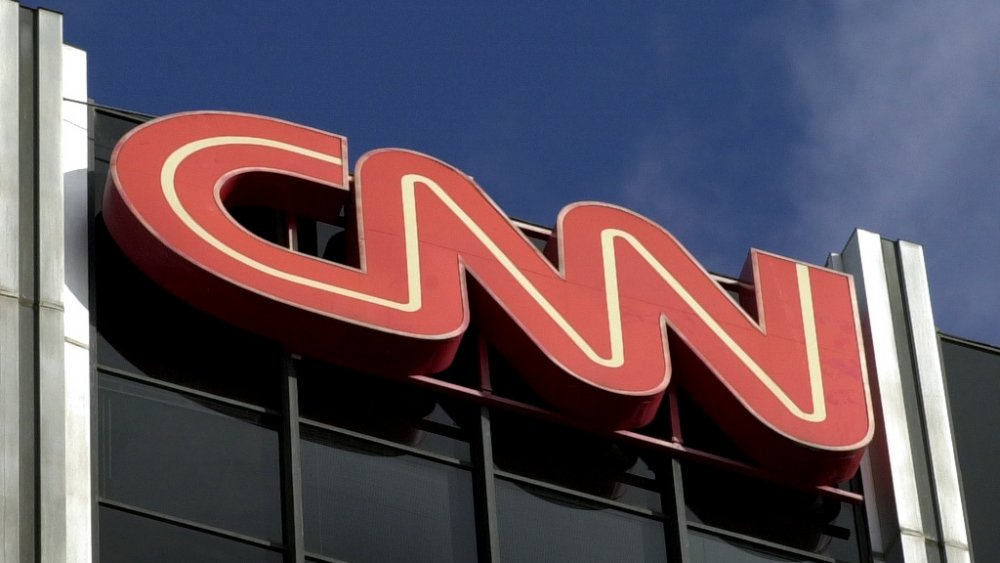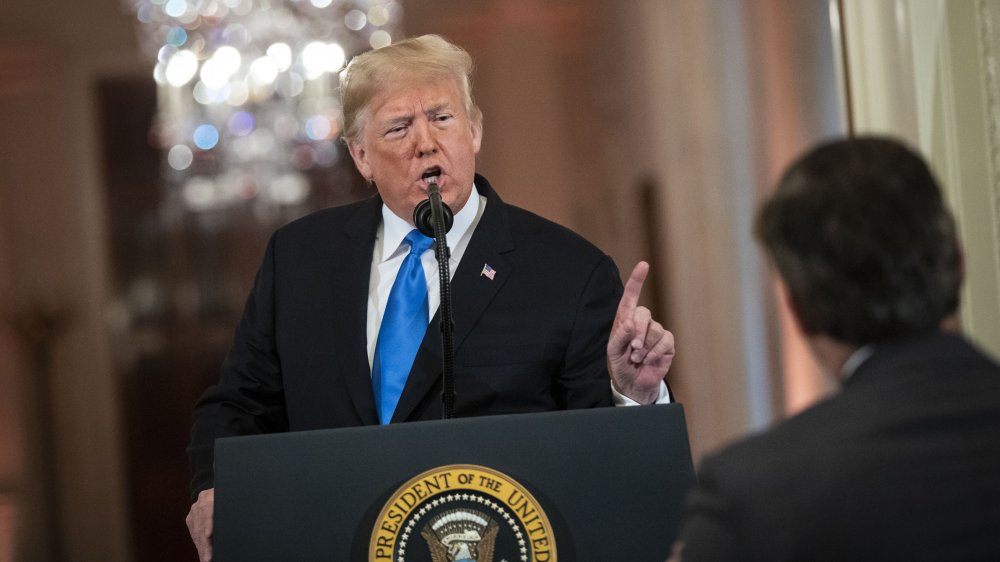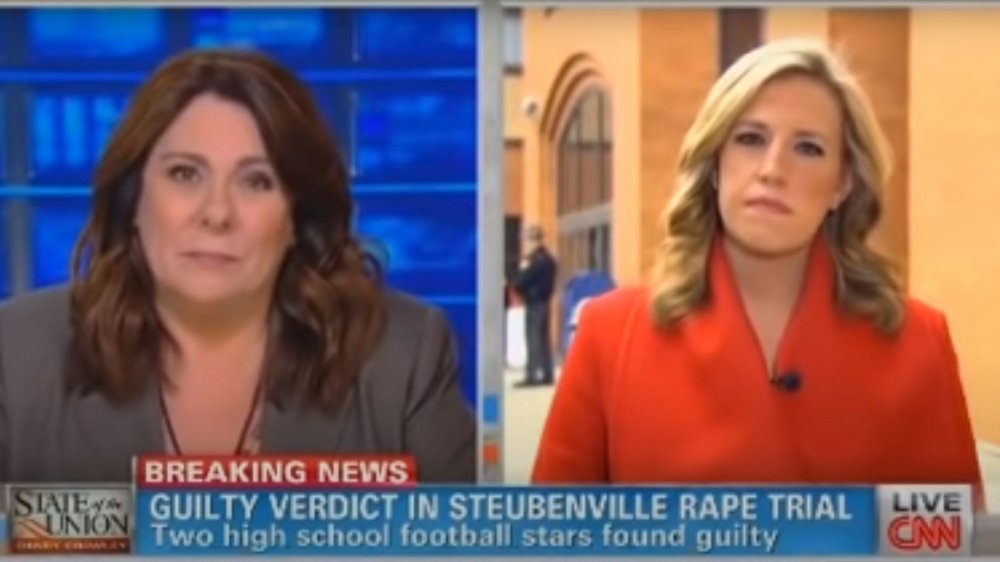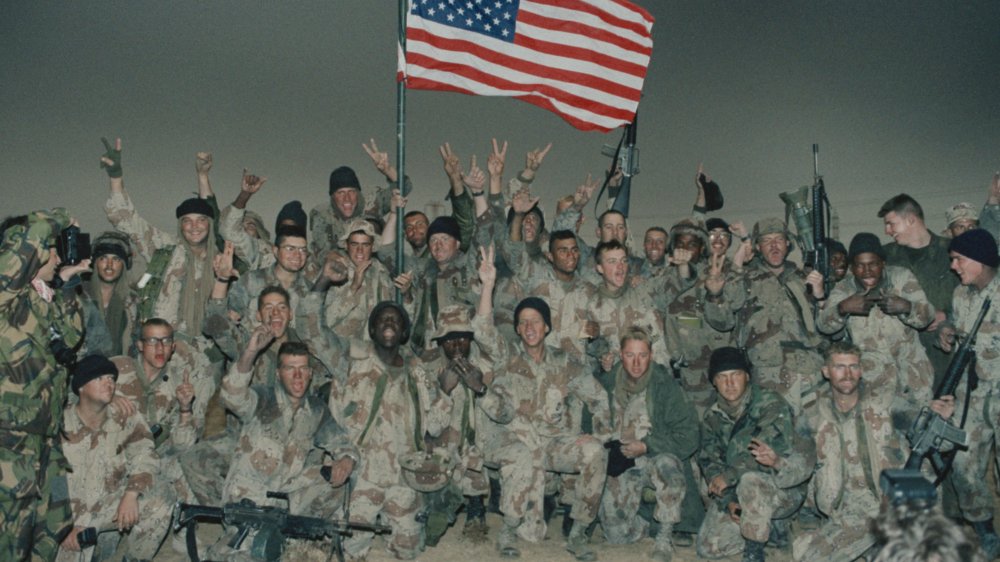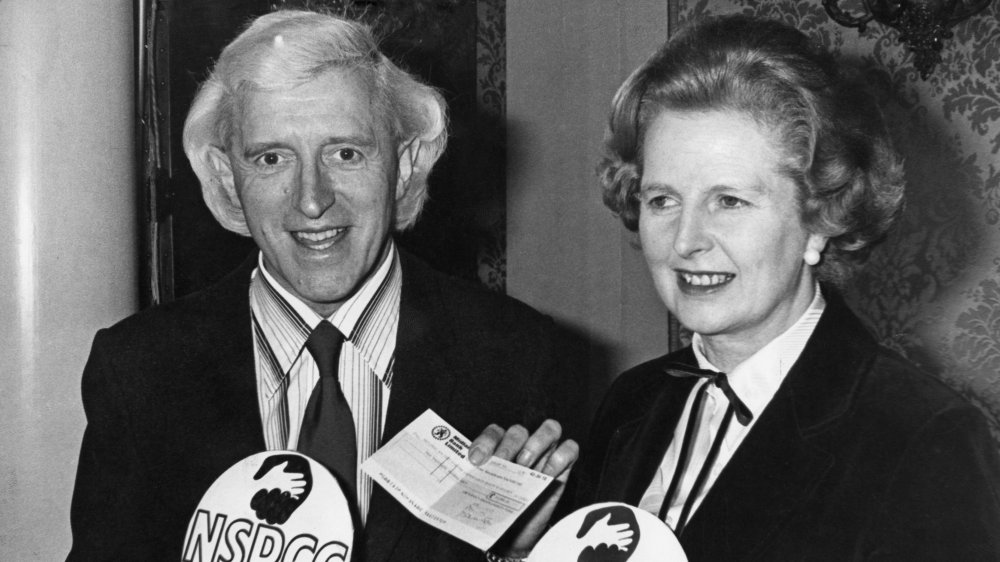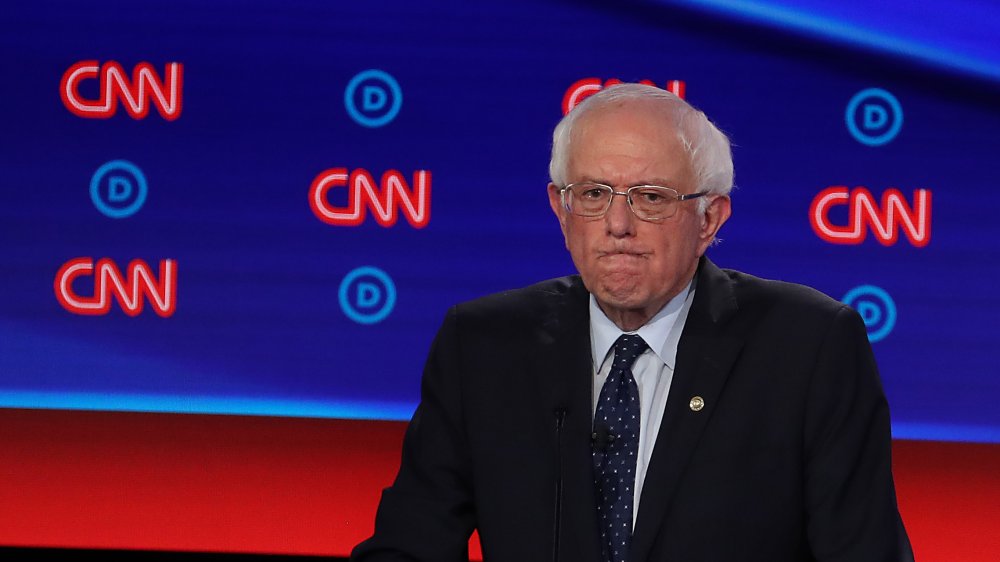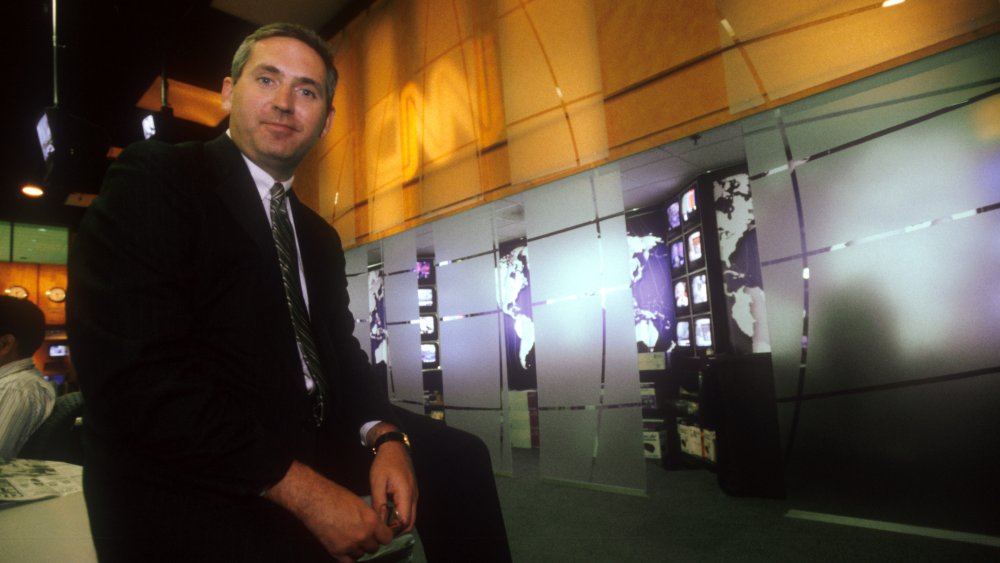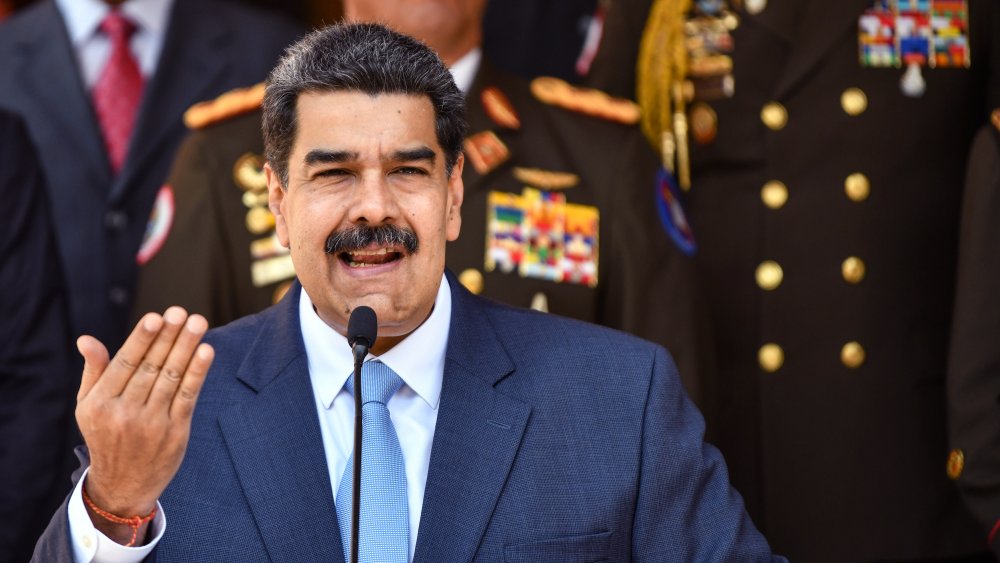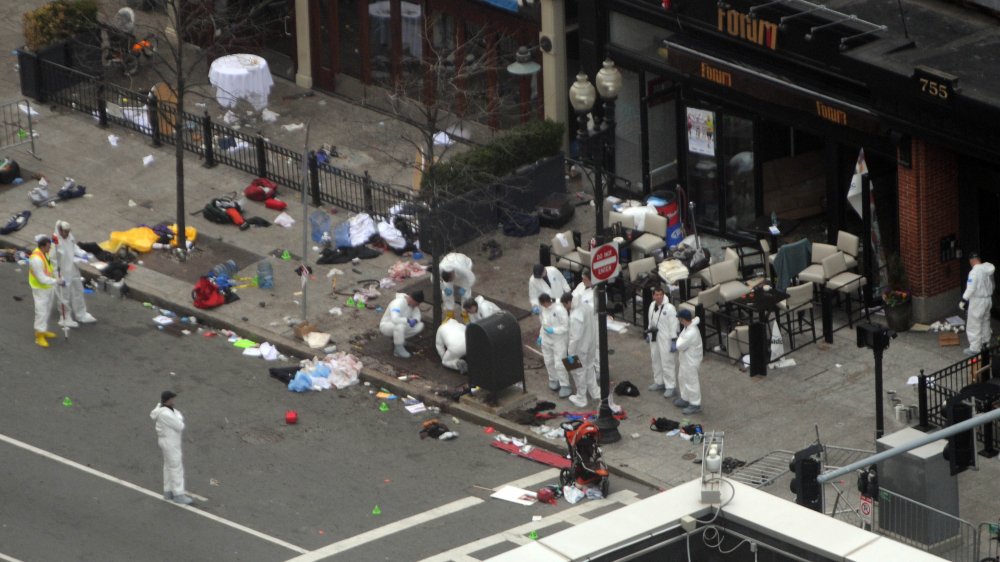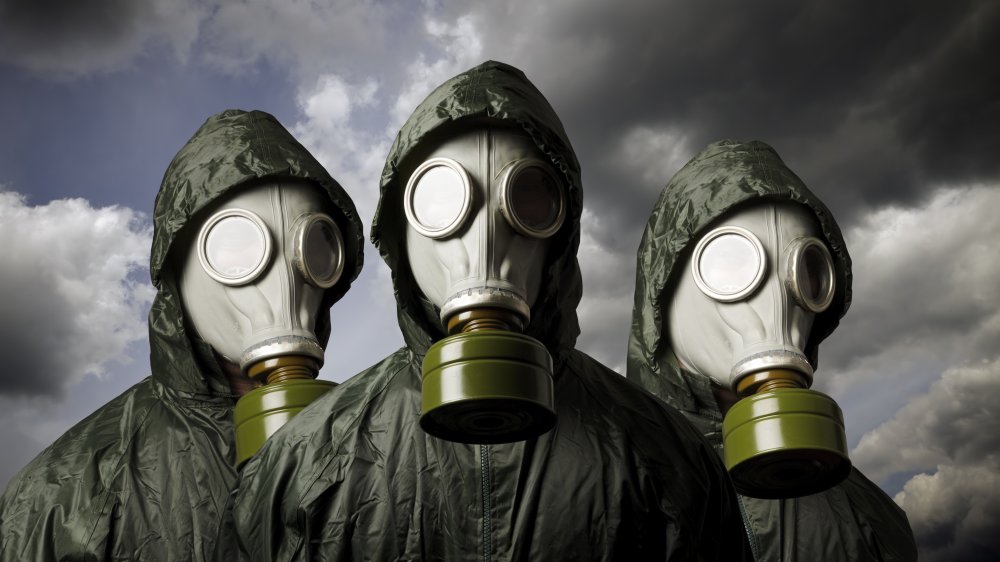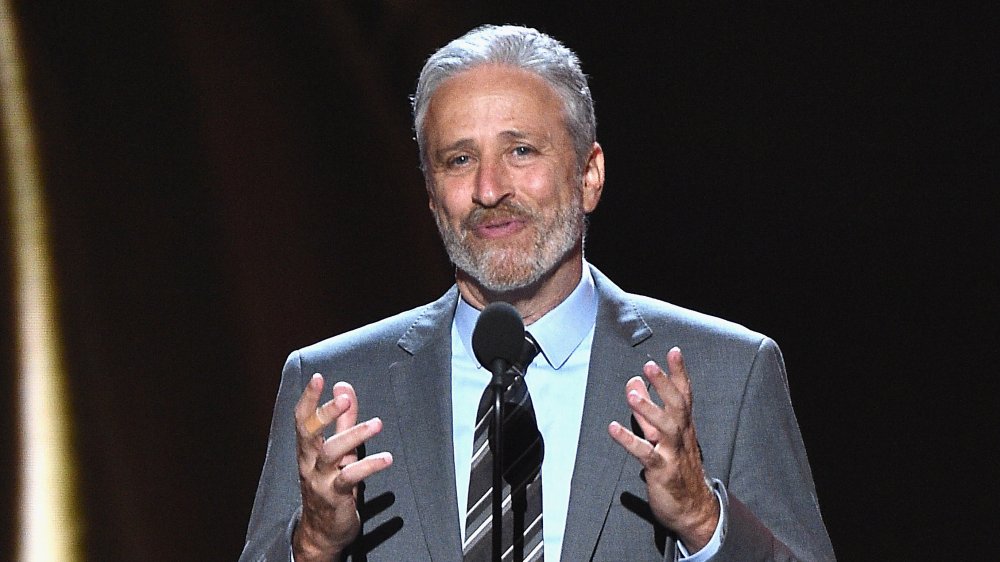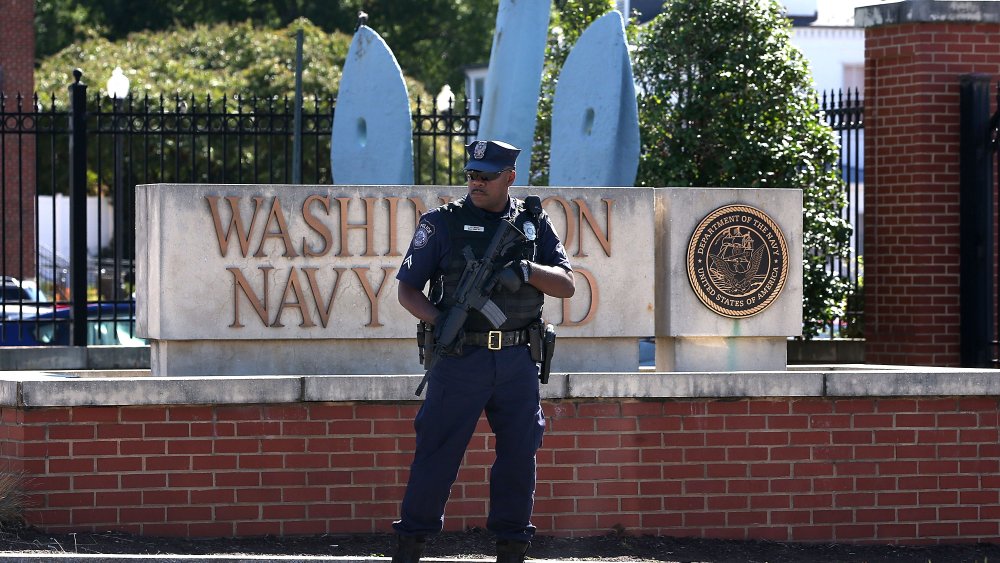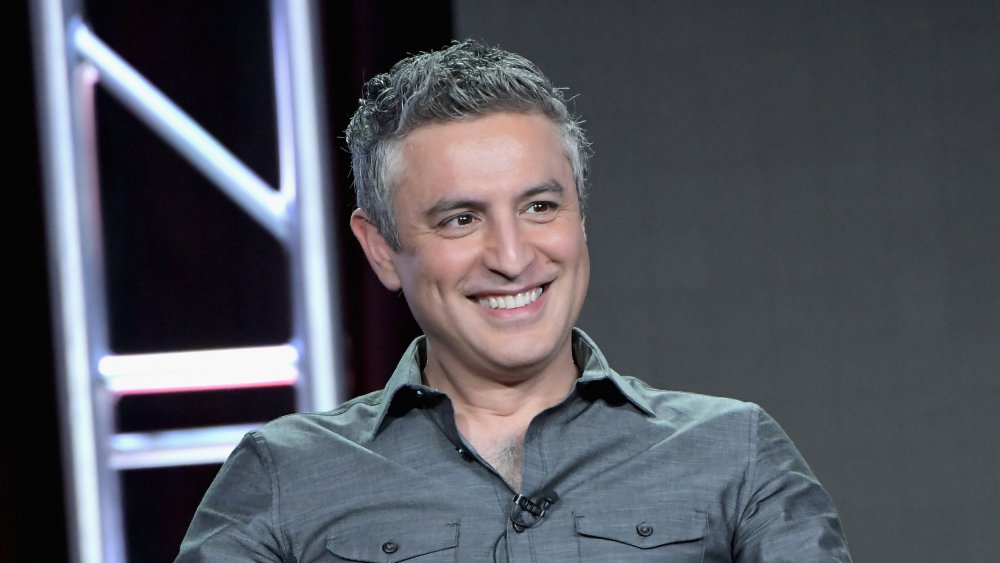The Biggest Scandals To Hit CNN
On June 1, 2020, one of the biggest news networks around turned 40. As History tells us, Ted Turner founded Cable News Network in 1980, and over the years, the around-the-clock news channel completely changed the reporting game, which used to be all about short, nightly news broadcasts. Meanwhile, its reach grew from the initial two million or so people to today's 90 million homes in the US alone — and a very cool 160 million globally.
Still, it hasn't always been smooth sailing. As an entity that devotes itself wholly to news, CNN hasn't always gotten things quite right. In fact, over the years, they've been involved in a number of controversies, questionable practices, and even outright misconduct. Some of them have been the mistakes of individual journalists or executives, others have come courtesy of outside forces, and others still ... well, you can make up your own mind about those, because today, we'll take a look at some of the biggest scandals to hit CNN.
Troubles with Trump
If you've kept up with the active media commentary of the 45th President of the United States of America, you might have noticed that Donald Trump doesn't much care for CNN. In fact, that's something of an understatement. In one way or another, the Commander in Chief and the news network appear to be at constant odds with each other, often about the President's alleged connections with Russia. In 2017, CNN had to retract a story about a Senate investigation on Trump associate Anthony Scaramucci's connections with the Russian Direct Investment Fund, per the Los Angeles Times. The network publicly apologized to Scaramucci and three of their investigative journalists ended up resigning over the incident. As the BBC tells us, in 2018 the White House suspended the credentials of Jim Acosta, CNN's number one White House correspondent, after Acosta provoked Trump's ire by asking about the investigation into alleged Russian interference in the 2016 presidential campaign.
The relationship doesn't seem to be on the mend, either. In March 2020, a critical column by ex-general counsel of the Federal Election Commission, Larry Noble, caused the Trump campaign to file a defamation lawsuit against CNN, according to Variety. As USA Today notes, in June 2020, the President himself fumed about CNN's polls that showed the Democratic candidate, Joe Biden, in a comfortable lead ... and his campaign promptly slapped the network with a cease and desist letter, arguing that the poll was biased.
CNN botched the handling of the Steubenville rape trial big time
The Steubenville rape trial, as Raw Story and Mic tell us, was a nasty 2013 court case where two teenage boys were accused of brutally sexually assaulting an unconscious, 16-year-old girl, and spreading nude pictures of her. What's more, their defense argued in court that her unconsciousness equaled consent. With details like that, it's no wonder that news networks were interested in the case.
However, the angle CNN chose for the case's conclusion was unique, to say the least. When Trent Mays and Ma'lik Richmond were ultimately found guilty, CNN's Candy Crowley and Poppy Harlow summed up the case by ... sympathizing with the convicted rapists. "It was incredibly emotional, incredibly difficult even for an outsider like me to watch what happened," Harlow reported, "As these two young men that had such promising future, star football players, very good students literally watched as they believed their lives fell apart." They then followed up with footage of the crying culprits in court, and even brought in an expert to lament the kids' horrible fate of ending up in the sex offender registry. Ouch.
But wait, there's more! The Atlantic tells us that CNN also managed to broadcast the victim's identity to its viewers when they aired an unedited clip where one of the defendants used her name. To be fair, CNN wasn't the only one doing this, as Fox News and MSNBC also committed the same journalistic faux pas.
Gulf War coverage controversy
CNN's game was strong during the Gulf War. As the Atlantic tells us, the network's ability and willingness to cover the war with their round-the-clock news machine gave birth to the term "CNN Effect," the mass media's perceived ability to portray other people's plight in such an effective way that the government ends up doing something about the situation. While the CNN Effect has never been conclusively proved, it's worth noting that once CNN entered the Gulf War fray, the U.S. started a period of inserting itself in faraway conflicts from Kosovo to Somalia.
According to the New York Times, though, CNN's work during the Gulf War was far from flawless. While the network's constant and numerous reports of the air raids and other proceedings were extensive and exciting, they were also rather controversial. Some criticized the quality of their reporting and, as the Los Angeles Times puts it, their "hair-trigger journalism." CNN's competitors happily aired viewer criticism against the network, and eventually, CNN itself started running excerpts from the generally negative viewer feedback they received.
One common target for criticism was journalist Peter Arnett. He started his coverage as a heroic figure braving bombings in Baghdad, but as time went on and he became the last American correspondent remaining in the enemy capital, his reports became restricted and censored by Iraqi officials. Though he was able to deliver content such as an interview with Saddam Hussein, many saw his dispatches as little more than enemy propaganda.
The Thatcher photo scandal
Margaret Thatcher, the Iron Lady, was the Prime Minister of Britain from 1979 to 1990. She was a conservative powerhouse whose policies were often controversial, and as such, her legacy is ... complicated, to say the least. Still, she was one of the most powerful leaders of her time, and when she died in 2013, CNN had the story. The problem is, they also had the pictures.
According to Raw Story, CNN's morning show, Starting Point, covered Thatcher's death by liberally using a photo of the passed-away PM posing with Jimmy Savile, a famous DJ and TV personality. Which would have been fine and well, if it wasn't for the fact that Savile, who had passed away a couple of years earlier, had recently been outed as a particularly terrible sex offender who had used his considerable fame to abuse scores of children. To give you an idea of what Savile's reputation was at the time of Thatcher's death, the BBC reported in 2012 that the Scotland Yard was looking into more than 500 alleged cases.
While Digital Spy mentions that some people interpreted the use of the photo as a simple, unfortunate mistake, others were quite outraged about it. Fortunately, the Scotsman notes that the network also featured pictures of Thatcher with other famous figures ... such as the Chilean dictator, Augusto Pinochet. Whoops.
Occupy CNN
Presidential hopeful Bernie Sanders' supporters were notoriously dedicated during the 2016 primaries, and CNN got its part of their overflowing enthusiasm. As CBSN Los Angeles tells us, Sanders fans were frustrated about the way they felt CNN gave disproportionate attention to candidates like Donald Trump, and disproportionately little coverage of Sanders. As a result, the hashtag #OccupyCNN was born, and under that flag, a large number of Sanders supporters arranged a protest at the CNN building, on Hollywood's Sunset Boulevard.
The #OccupyCNN hashtag continues to pop up on Twitter on occasion, and its similarity to the famous Occupy Wall Street movement, which arranged a massive protest in lower Manhattan in 2011, may not be a coincidence. As CNN itself reported shortly after the protest, Sanders' message of change and focus on economic unfairness is more than a little similar with Occupy's ideology, and many of the movement's veterans have likely moved to the Vermont senator's staunch support troops.
Eason Jordan misspeaks and resigns
Sometimes, all you need to create some controversy is a mistaken turn of phrase at an otherwise unassuming panel discussion. Such was the case with CNN executive Eason Jordan who, as the New York Times reports, ended up in extremely hot water in 2005, when he reportedly stated that the U.S. army killed journalists in Iraq.
Jordan, who was in charge of CNN's coverage of Iraq and a strong champion of journalists' security in the conflict zone, was part of a panel at the World Economic Forum in Switzerland. While no transcripts of his word-for-word remarks exist, the panel moderator later revealed that the CNN bigshot had stated that over four dozen reporters had been killed in Iraq, and he believed that soldiers "on both sides" had been "targeting" at least a few of them. Jordan soon backtracked and clarified that the U.S. Government clearly has no policy of attacking the media, and he only meant that American soldiers may have unwittingly turned their guns on the occasional journalist, without knowing their profession. Unfortunately, this was too late, as his comments were already making the rounds. Jordan ended up submitting his resignation.
Ironically, Jordan's comments may actually have had a point, at least according to Ann Cooper of the Committee to Protect Journalists. She says that at least nine of the 54 journalists who died violently between 2003 and 2004 perished because American soldiers opened fire on them.
CNN vs. Venezuela
As the BBC reports, the Venezuelan government is not a fan of CNN. In fact, they detest the network so much that in 2017, they outright banned it in the country. According to CNN, the country accused them of "spreading propaganda." According to Andres Eloy Mendes, director of the country's National Telecommunications Commission CONATEL, this is because CNN is full of violence and "instigates religious, racial, and political hatred."
Regardless of the actual line of reasoning that led to President Nicolas Maduro's cohorts disallowing the broadcasts of CNN en Español, both BBC and CNN mention that the decision came shortly after the network ran a report that included some pretty hefty allegations about Venezuela's Vice President, Tareck El Aissami. The report looked into Venezuela's dodgy passport and visa procedures, and linked El Aissami to 173 passports that have been sold to various individuals in Iraq, including members of the terrorist group Hezbollah. Unsurprisingly, this did not go over well ... especially as El Assami and Maduro were already pretty irked at Americans, due to the U.S. Treasury's allegations that the former was heavily involved in drug trafficking.
CNN and the Boston Marathon bombing
In 2013, the Boston Marathon bombing shook the nation, and as Variety tells us, caused several news outlets to seriously embarrass themselves by falling over each other to find new angles and report everything in sight with little regard to the alarmist implications. At the moment, CNN was in the process of a management change, so what happened next might have been caused by the staff's eagerness to impress the new chief. Maybe it was an unfortunate byproduct of a genuine attempt at effective reporting. Regardless of the real reason, Mediaite tells us that the network's quest to get an edge over their competitors led to some less than credible guesswork reporting. A particularly egregious case in point: While multiple media outlets released false reports about the arrest of a possible culprit before the FBI had told anyone anything, CNN's John King took things one step further when he described this nonexistent suspect as a "dark-skinned male." Sure, the story was swiftly redacted, but still, not cool.
Still, according to Politico, the events didn't stop the new CNN president, Jeff Zucker, from sending his staff an internal memo congratulating them on their work.
The Operation Tailwind scandal
It takes guts and rock-solid facts to accuse the military of using nerve gas, but as the New York Times tells us, that's precisely what CNN did in 1998. The much-hyped report was broadcast in Newsstand: CNN & Time, a collaborative effort between its namesake Time-Warner news giants. It alleged that the U.S. military had used deadly sarin gas in a top secret 1970 mission in Laos, in order to get rid of a group of defectors. However, what could have been a bad look for the military became a disastrous one for CNN. As the Washington Post reports, experts soon challenged the report's claims, CNN replied by immediately redacting the story, citing inability to verify the claims it made and slinging apologies this way and that.
CNN voluntarily took the full brunt of the blame. Resignations and reprimandings ensued. When the producers of the story refused to resign, they were promptly fired. Yet, as a strange epilogue to this embarrassing incident, the producers still stood by the story, to the point that one of them sued the network for a grand total of $106 million. The case was settled in 2001.
Jon Stewart takes down CNN Crossfire
As anyone who has seen The Daily Show with Jon Stewart (or just Jon Stewart in general) can likely attest, the comedian has a way with words. You'd expect that anyone who goes against him would come prepared, and in late 2004, Tucker Carlson and Paul Begala of the news debate show CNN Crossfire found out precisely why. The funnyman wasn't out to play, and he had a bone to pick with the way he felt Crossfire inserted theatrics and "hack" antics in journalism.
As such, the transcript of Stewart's conversation with Carlson and Begala is no joke. The Daily Show host had his game face on, and thoroughly eviscerated the very essence of Crossfire, to the point that he asked the hosts to "stop hurting America." He particularly focused on Carlson, calling out everything from his bow tie to his perceived need to further his studies on journalism. In a CNN article in 2015, Begala likens the experience to a disembowelment, and mourns that the situation "went off the rails" so badly that Stewart never got to deliver his more nuanced criticism of Crossfire on air. Instead, the hosts and producers sat down for a full 90 minutes after the show, politely discussing Stewart's grievances. (He felt Crossfire was deliberately divisive, simplified issues, and set up unnecessary conflicts.)
Fun fact: As Time tells us, Crossfire was ultimately canceled, and some folks feel that Stewart's takedown played a part in the decision.
The Navy Yard shooting coverage
As the Los Angeles Times tells us, CNN's coverage of the Navy Yard shooting incident of 2013 was not the network's finest hour. To be fair, according to the Washington Post, their cautiousness about identifying the suspect helped them avoid the pitfall of naming the wrong person, which happened to some of its competitors. In fact, they didn't really get their facts wrong at all.
Unfortunately, what actual reporting was done was ... strange, to say the least. Jon Stewart of The Daily Show (via Business Insider) had much to say about what he called the "breathless wrongness" of the network's reporting, and the way the chaotic nature of their constant live coverage led to some pretty strange situations. One CNN reporter was just basically naming a bunch of things he saw and insisting they were "interesting developments." Star anchor Wolf Blitzer, on the other hand, devoted some of his airtime to actively wondering what the color of the suspect's clothing might say about his motive.
Reza Aslan and Believer
For a show that only ran for one six-episode season, Reza Aslan's CNN show Believer made plenty of noise. As the Independent tells us, Aslan's show drew criticism in its very first episode, which explored the extreme Aghori sect of Hinduism, and drew accusations for offensive portrayal of Hindus. To be fair, Aslan did eat human brains in the episode, according to the Guardian.
However, the show ultimately proved less divisive than Aslan himself. In 2017, the host reacted to President Donald Trump's post-London terror attack travel ban with a derogatory tweet (Namely, he called Trump a "piece of s***t"), and as Deadline tells us, that was that. In a matter of days, CNN severed ties with Aslan, canceling the already announced season 2 of Believer in the process. While Aslan admitted that he had unduly lost his cool and was disappointed in the network's reaction, he also stated that he understood CNN's need to "protect its brand as an unbiased news outlet."
